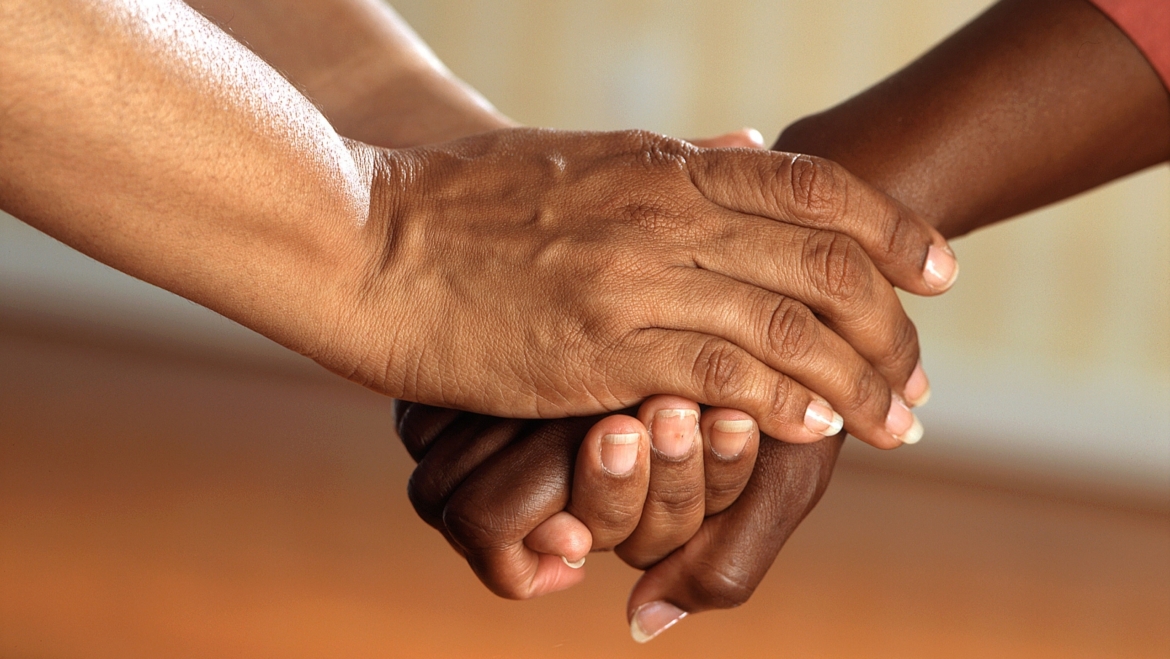October is Domestic Violence Awareness Month (DVAM). The history of DVAM cannot be told without first telling the story of Sarah Winnemucca and her desire to speak the truth about violence against indigenous communities. Gender-based violence in the United States is not a new issue. There are countless documented incidents of violence of indigenous and enslaved peoples as part of the founding of this nation. This DVAM, we want to honor and remember Sarah Winnemucca. Sarah wrote the first historical record of the Northern Paiutes in her autobiography, Life Among the Piutes, in 1883. She shared stories about violence against Native women by white men. Sarah Winnemucca was the canary in the coalmine, speaking truth about the experiences of survivors and telling the story no one wanted to hear, and without the narratives of survivors and people like Sarah there would be no DVAM.
During DVAM we honor and remember those who have lost their lives to domestic violence and those who continue to experience violence and abuse in their homes, communities, and relationships. We also use DVAM to remind our communities about the prevalence of violence and how we can get involved to support neighbors, friends, family members, and co-workers.
So what does Sarah’s work and story mean for us in 2022? What actions can we take to honor Sarah and continue our work to end violence in our communities?
Let’s start with the recent passage of the Violence Against Women Act (VAWA). VAWA was signed into law in 1994 to provide federal resources for coordinated responses to address rising incidences of domestic abuse with strong advocacy and public support. Survivors and advocates have spent the last 10 years fighting to reauthorize VAWA, and made it happen this year! The 2022 Reauthorization of VAWA was signed into law in March and went into effect on October 1.
Why do we need VAWA? The statistical reality in the United States does not paint a pretty picture:
- According to the National Coalition against Domestic Violence (NCADV), one in three women and one in four men have experienced some form of physical violence by an intimate partner.
- The National Network to End Domestic Violence (NNEDV) reports that on one day in 2021 victims made 9,444 requests for services—including emergency shelter, housing, transportation, childcare, legal representation, and other support needs—that programs could not provide because they lacked the resources. Approximately 64% of these unmet requests were for housing and emergency shelter.
- Disabled persons, Indigenous and Native communities, communities of color, and LGBTQIA+ survivors face additional barriers when accessing housing and homeless services.
- 43.8% of lesbian women and 61.1% of bisexual women have experienced rape, physical violence, and/or stalking by an intimate partner at some point in their lifetime.
- 26% of gay men and 37.3% of bisexual men have experienced rape, physical violence, and/or stalking by an intimate partner in their lifetime.
- In the 2015 U.S. Transgender survey, more than half (54%) of transgender people experienced some form of intimate partner violence, including acts involving coercive control and physical harm.
- Data from CDC’s Youth Risk Behavior Survey in 2019 indicates that one in 12 high school students experienced physical violence, and one in 12 experienced sexual dating violence in a 12-month period.
- The Stalking Prevention, Awareness and Resource Center (SPARC) reports that one in three women and one in six men will be stalked in their lifetimes.
Domestic violence, sexual assault, dating violence, and stalking remain a public health and equity crisis and we have a lot of work to do. VAWA 2022 provides hope with new provisions and resources for states, territories, tribes, and tribal programs and the many organizations that serve survivors and their families. As we celebrate the reauthorization of VAWA we want to highlight some of the important provisions in the new regulation:
- Reauthorized all current VAWA grant programs through 2027.
- Expanded authorized use of grant funds to support and respond to elder abuse.
- Expanded the special criminal jurisdiction of tribal courts to cover non-Native perpetrators.
- Mandatory climate surveys for colleges and universities.
- Increased services and support for survivors from historically marginalized communities.
- Invested in prevention and response.
- Improved healthcare system’s response to gender-based violence.
- Prohibited retaliation against survivors for exercising their VAWA rights.
- Provided new enforcement authorities for HUD and DOJ.
- Established a Gender-Based Violence Prevention Office at HUD.
These are just a few of the provisions we are excited to see implemented in communities across the country. So how is Cloudburst honoring and celebrating DVAM, VAWA, and Sarah Winnemucca?
As advocates and allies advancing an equity agenda across the nation and the globe, Cloudburst stands by our commitment to reduce barriers faced by those who belong to underserved and historically marginalized communities that have long been denied full opportunity: all people of color, LGBTQIA+ people, people with disabilities, and all of those whose lives are affected by persistent poverty, inequality, and gender-based violence.
Cloudburst worked with HUD’s Community Development Block Grant (CDBG) program to provide training for subgrantees about the new VAWA Right to Report from One’s Home provision, and educate National Fair Housing Training Academy (NFHTA) stakeholders on violence against women. NFHTA participants will understand domestic violence, dating violence, sexual assault, and stalking from the diverse perspectives of survivors, and preview HUD’s enforcement authorities under VAWA. Click here to learn more about Cloudburst’s gender-based violence practice area.
We also encourage you to check out DVAM events and activities in your area by visiting your local domestic violence organizations’ web and social media pages. Together, let’s honor those we have lost, celebrate the progress we have made, and find ways to continue to push forward.

